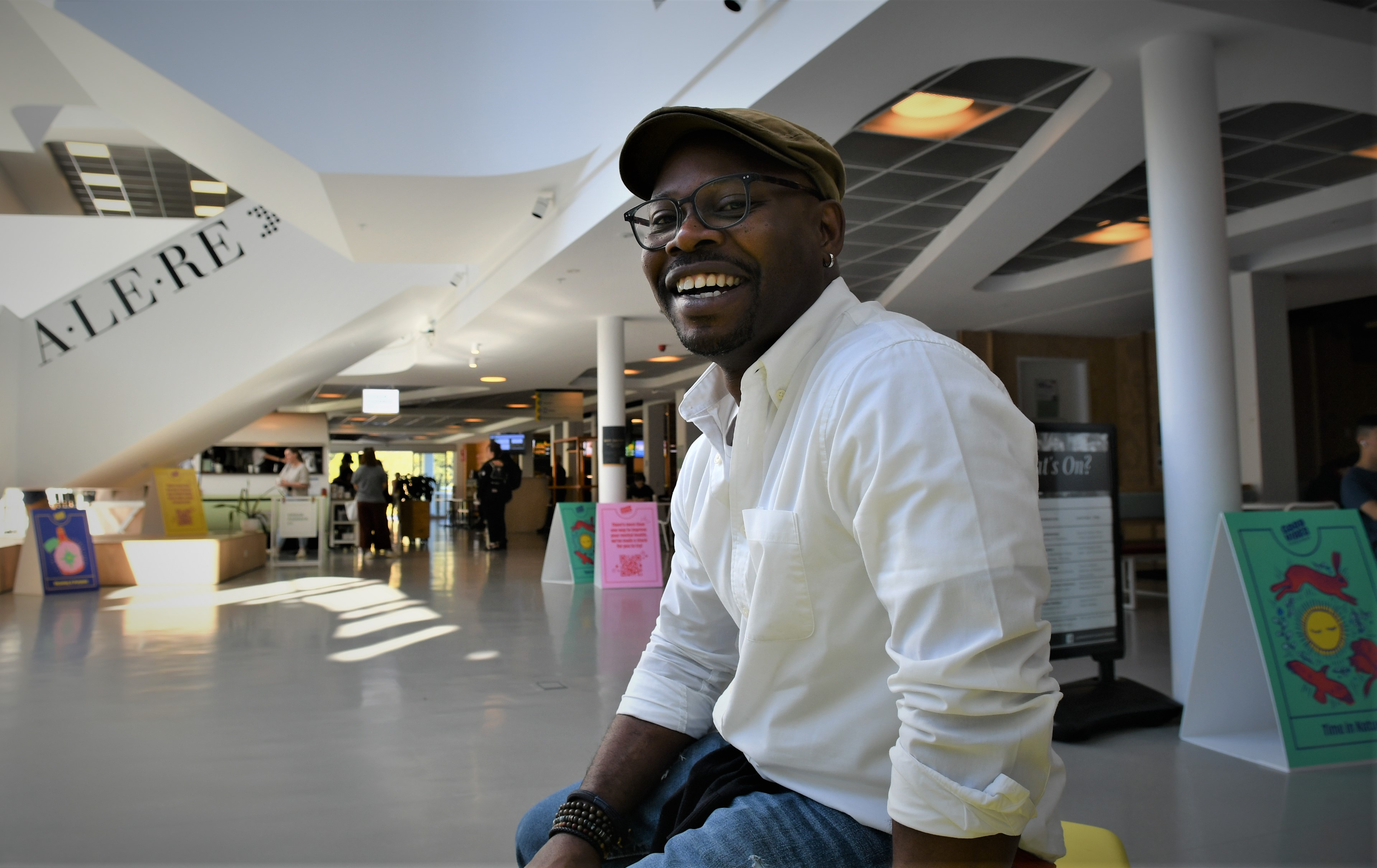
Born in Nigeria, raised in New York City but now residing with his wife and three children in Clare, Teaching Specialist in Education Chidozie Alozie arrived at Flinders University six weeks ago and hit the ground running – tackling a mix of first-year and Masters students – and he’s excited by what he’s found on campus.
What is your role and what does your work focus on?
I’m a teaching specialist working mostly with first-year students in teacher education. It’s like work I did previously at Adelaide University for six years, and I know this isn’t the most popular thing to say, because everyone considers themselves a researcher, but I’m foremost a teacher, and it pleases the hell out of me to say that. I especially like working with adults who have come back to higher education – their drive and their purpose inspires me.
I’m also an Apple Teacher, which means I’m accredited for exploring tech to help teaching – not just as an end user, but to engage with different software and expand thinking about how to best engage with students. Still, I’m not wedded to any specific technology. I’d spend about six hours a week checking out new apps and software, and I’m trying to introduce something new to my classes each week, just to get them thinking outside of what they are already familiar with and to consider other possibilities of what is possible with technology and how they can best use it.
Can you briefly describe the journey that took you to this point in your career?
We’ve always been moving, travelling, changing. I was born in Nigeria, and the family moved around western Europe for a while before settling in New York City in the early 1980s, so I tend to think of myself as a New Yorker, but I’ve kept moving, to different cities in the US, and now Australia. I call myself the perpetual immigrant and accidental academic. I many ways I’ve followed the steps of my father; we both focused on sports in university before entering academic life, and we both commenced our PhDs on the arrival of our third child – which I would not recommend to anyone. Time management has always been stretched since that point.
My association with Australia started early. When I was 16, I had an education exchange homestay in Melbourne, and the family took me on a six-and-a-half-week road trip, camping all the way across Australia to the Top End and back. After I went back to the States, I always said I’d move to live in Australia and when I was 30, and that’s what happened. I had worked in the US with an organisation called the Experiment in International Living – an 87-year global homestay exchange program for high school students – and I was assigned to help improve the Australian program, and would come each summer for seven years to places in South Australia, including Carrieton Orroroo and Clare – and that was when I met a girl, and the story begins anew from 2008.
Can you describe a challenge in your life and how you dealt with it?
COVID-19 presented a great challenge to all teaching – and this is where I think the strengths of teaching came back to the fore. In this era, the importance of education cannot be understated – and to rescue teaching from the technocrats and the politicians, you have to get stuck in and get your hands dirty. You have to be innovative and engage, and this is where I think Flinders has an excellent opportunity continue developing in this space. COVID-19 restrictions really challenged how we have engagement and impact, but at the core, we had to get to the essence of teaching, which is creating spaces where students can develop, and supporting them through that. In fact, COVID-19 really clarified what I do and why I do it.
What is something you are most proud of?
I’m buzzed by the fact that I’m still loving teaching. I love the challenge between teaching first-year students and Masters students, who I am so impressed with for the way they focus. And it goes on – in education, you know that the learning for all of us continues, and that you are not a finished product. That level of discomfort is good. It’s what we do to our students all the time. We have to be prepared to work through that space too.
What does a normal day look like for you?
It starts and finishes with a lot of driving – the family lives in Clare, so there’s two hours of thinking time in the car before getting to Flinders. Then it’s a three-hour drive home, because South Road is chaos at the moment. In between, there’s already a lot of classes and a lot of students to deal with.
How do you like to relax or spend your spare time?
Sport has been a serious part of my life. I did wrestling in the US and reached the junior Olympic level, and coached as well. I played some Gridiron, and a lot of rugby, which was a great way to meet new friends in new cities. But having performed a such a high level of competitive sport, I find it very hard to do it only for fun – but that’s what doing sport with my kids is now teaching me. So, I’m doing Brazilian jiu-jitsu with my kids, and learning golf. I also enjoying singing with a choir. I used to do a cappella singing years ago – the movie Pitch Perfect really echoed my life for a while – but now I do most of my singing in the shower, or to put the kids to sleep.

